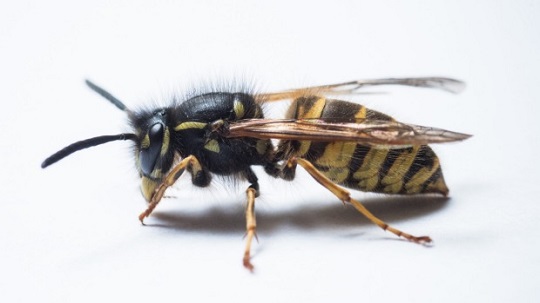Wiping out invasive wasps a 'critical issue' for New Zealand's environment
A pest control method inspired by Greek mythology is one of the latest weapons being developed in New Zealand's war on invasive wasps.

Professor Phil Lester of Victoria University spoke at Nelson Marlborough Institute of Technology on Tuesday night about a research project he is leading aimed at wiping out wasp populations.
Lester, an expert in insect ecology, said it was appropriate that he was giving the talk in Nelson, which he said was the "wasp capital of New Zealand".
He said the German and common wasp have been wreaking havoc on New Zealand's native birds, insects and other wildlife since they were accidentally introduced in the 1940s and 1970s respectively.
They are most prevalent in beech forest where they feed on honeydew, a sugar-rich liquid secreted by aphids and a popular food source for birds, lizards and insects. But they have also caused major problems in residential areas and tourist hot spots like Abel Tasman and Nelson Lakes national parks.
Pest wasps also cost the country an estimated $130 million a year, impacting on farming, beekeeping, forestry and tourism.
"Certainly these wasps are one of the critical issues in New Zealand," Lester said, "especially around your neck of the woods."
Lester said research, funded by the Government as one of its National Science Challenges, was underway into four new pest control methods for the wasps.
One of the methods being investigated was called "the Trojan female technique", inspired by the Greek myth about the Trojan Horse.
It works by raising, and introducing into the wild, large populations of female wasps with mutations in their mitochondrial DNA, which might render their offspring sterile.
The other studies were looking at manipulating wasp behaviour using pheromones; using mites to deliver harmful pathogens into wasp nests; and RNA interference, also known as gene silencing, which Lester described as the "next generation of insecticides".
The research project was expected to take close to 10 years, Lester said.
In the meantime, he recommended that people used the protein-based bait, Vespex, developed by Nelson man Richard Toft, to reduce wasp populations in residential areas.
"If streets in Nelson get together and think, 'Let's get a program together' ... you'll be able to largely control wasps in your population with [Vespex]," he said.
The Department of Conservation has had success using Vespex, reducing wasp populations in parts of Abel Tasman National Park by 98 per cent.
In December, Nelson-based company Merchento announced the release of Vespex for public use.
Lester came to Nelson through the NZ Biological Heritage Challenge and his visit was supported by the Nelson Science Society.
- Stuff
